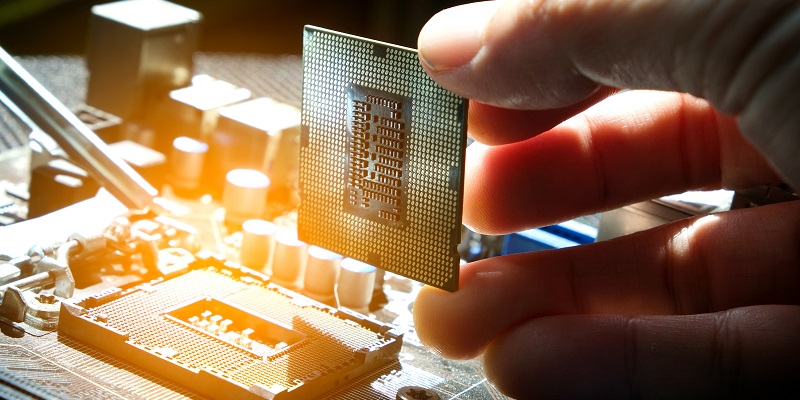AMD, the renowned semiconductor company, has recently unveiled Linux patches for its highly anticipated next-generation Zen 5 CPUs designed for the Ryzen and EPYC families. These Linux patches, identified as AMD ‘Family 1Ah’ based processors, underline the significance of the ‘Family 26’ codename, further corroborated by a previous leak. This development highlights AMD’s dedication to providing robust support for upcoming processors on Linux, with this being the first time such a patch has appeared on the Linux kernel. Let’s delve deeper into the details and implications of these Linux patches.
Linux Patch Details
The Linux patch released by AMD is specifically designated for AMD “Family 1Ah” based processors, which correspond to “Family 26” in decimal notation. The codename “Family 26” surfaced in an earlier leak, adding further weight to the assertion that these Linux patches are indeed intended for the next-generation Zen 5 processors. AMD’s commitment to Linux support is evident, with the company responding swiftly to ensure compatibility and performance optimization for their upcoming CPUs on this popular operating system.
Importance of the Linux patch
The emergence of this Linux patch is significant for several reasons. Firstly, it marks a notable milestone for AMD, as it signifies their proactive approach to providing Linux support for their upcoming processors. The fact that this patch has appeared in the Linux kernel adds credibility to AMD’s commitment to ensuring seamless integration with Linux-based systems. This move aligns with AMD’s reputation for open-source technologies and extensive support, further solidifying its position as the preferred choice for users in the Linux ecosystem.
Enhanced features of the Linux patch
The Linux patches introduce a host of new features that enhance the functionality and performance of the alleged Zen 5 processors. Notably, the patches bring new PCI IDs specifically tailored for the ‘Zen 5’ processors. These IDs play a crucial role in facilitating device recognition and communication between hardware components, ensuring a smooth user experience. Additionally, the support for the k10temp driver module is included, allowing users to conveniently monitor the temperature of their AMD CPUs.
The Linux patches also incorporate EDAC AMD64, an error correction technology used in AMD’s 64-bit processors. This technology plays a pivotal role in detecting and correcting data errors, thereby enhancing the reliability and stability of AMD CPUs. By employing these advanced features, AMD aims to provide users with a seamless and efficient computing experience, further reinforcing their position as an industry leader in processor technology.
Growing popularity of AMD on Linux-based systems
AMD’s popularity on Linux-based systems has been steadily growing over the years, and this recent Linux patch release only serves to strengthen their dominance over competitors. The widespread adoption of AMD CPUs on Linux-based systems can be attributed to their extensive support and commitment to open-source technologies. AMD’s dedication to Linux compatibility has garnered a loyal user base in the Linux community, who value the seamless performance and reliability that AMD processors offer on this operating system.
Expectations for future patches
The release of the Linux patch under the ‘Family 26’ codename hints at the potential for more developments in the near future. AMD consistently demonstrates its commitment to optimizing its processors for Linux, and it is highly likely that additional patches and updates will surface in the coming days. It is therefore crucial for enthusiasts and industry observers to remain vigilant for further reports and updates in order to stay ahead of the curve.
AMD’s plans for the Ryzen 8000 ‘Granite Ridge’ family
Looking ahead, AMD has officially confirmed that its upcoming Ryzen 8000 ‘Granite Ridge’ family, set to launch in 2024, will feature the latest Zen 5 CPUs and RDNA 3.5 GPU cores. This announcement underscores AMD’s commitment to innovation and advancement in processor technology. By leveraging the power of Zen 5 CPUs and RDNA 3.5 GPU cores, AMD aims to deliver exceptional performance, power efficiency, and cutting-edge features to meet the evolving demands of modern computing.
AMD’s release of Linux patches for their next-gen Zen 5 CPUs for Ryzen and EPYC families demonstrates their dedication to providing robust support for Linux-based systems. These Linux patches, bearing the ‘Family 1Ah’ designation and confirming the ‘Family 26’ codename, set the stage for seamless integration and optimized performance on Linux platforms. As we eagerly await further patches and updates under the ‘Family 26’ codename, AMD’s commitment to open-source technologies and Linux compatibility continues to solidify its position as a market leader. With the forthcoming Ryzen 8000 ‘Granite Ridge’ family poised to harness the power of Zen 5 CPUs and RDNA 3.5 GPU cores, AMD embarks on a path of delivering cutting-edge and highly efficient processors that cater to the needs of modern computing landscapes.

